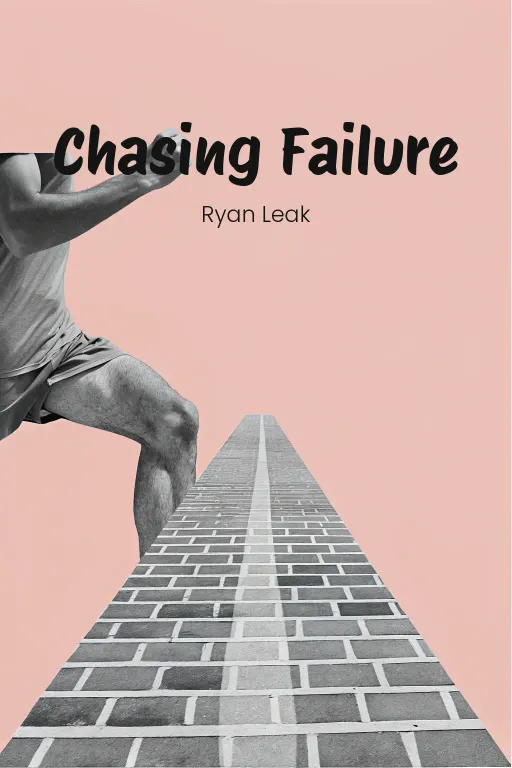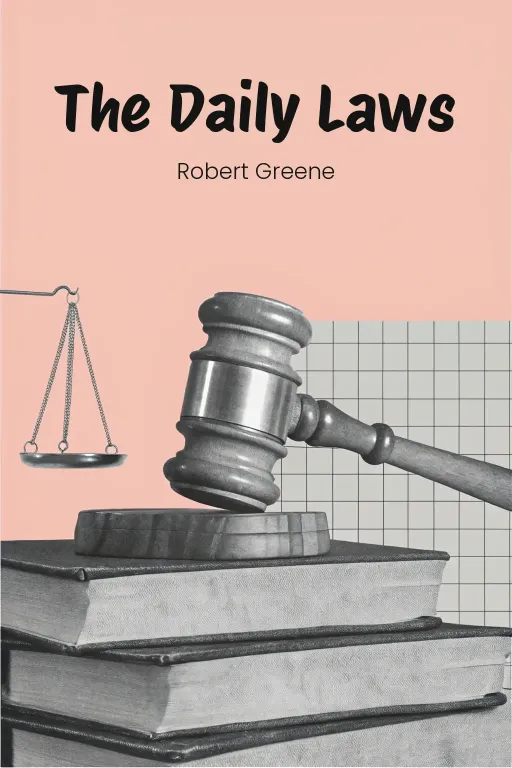
Turn Pain Into POWER? Here's HOW!
Podcast by Beta You with Alex and Michelle
Face Reality, Release Negativity, and Live Your Purpose
Introduction
Part 1
Alex: Hey everyone, welcome! Today we’re jumping into a journey of self-discovery, facing our challenges, and really building a life of purpose and growth. I’m excited about this one. Michelle: Alright, sounds ambitious! Another self-help book, huh? I’m always a bit skeptical going in, but hey, let’s see what it’s got. Alex: Exactly! So, our guidebook today is Trent Shelton’s “The Greatest You”. It’s not just some rah-rah, feel-good thing. It's a practical guide on facing your past, finding your purpose, and fundamentally building resilience. Shelton uses his personal stories with this actionable processes to show how our life’s toughest moments, when you face them with discipline and faith, they can be these opportunities into something significant. Michelle: Okay, I'm listening. He’s not just telling us to slap on a smile and bulldoze through, right? Because, yeah, I’d have some questions about that. Alex: No, not at all. What we’re going to do today is unpack three key ideas from the book. First, we are going to talk about honestly facing your battles head-on with courage – because the alternative, running away, will keep you exactly where you don’t want to be. Second, we’ll explore shedding those limiting labels and really uncovering your true purpose, something that’s so much bigger than just fitting in. And third, how pain, seen through the right lens, can become a stepping stone to resilience and growth. Michelle: Okay, so it’s about turning those struggles into, say, a mountain climb, right? It’s tough, the climb is rough, but the view from the summit, that’s what makes it worthwhile. Alright, I’m intrigued. Let’s see if Shelton’s journey is as rewarding as he makes it sound.
Facing Your Battles
Part 2
Alex: Okay, let's dive right into the core of Shelton's philosophy: facing your battles. This is really the foundation, because it forces us to stop, really look at our struggles, and acknowledge the things we might be trying to ignore. He doesn't just skirt around the issue, he really emphasizes that growth begins with self-awareness and, frankly, confrontation. Michelle: Right, but let's break this down. I mean, why does acknowledging our challenges feel like climbing Mount Everest for some of us? Logically, we know avoidance doesn't solve anything, but honestly, it's sometimes just so much “easier” to pretend the monster under the bed isn't there. Why do you think? Alex: Well, that's the exact dilemma Shelton is talking about. He explains how avoidance creates a kind of gap between who we are and who we want to become. It's like living in a fractured reality. His own story is a classic example. When he didn't get drafted into the NFL, his entire sense of identity just...shattered. He poured everything into that dream for years, and when it failed, he was left asking, "Who am I without this?" Michelle: It's like putting all your chips on one number at the roulette table, black or red, and then watching it all disappear. In that kind of situation, I imagine most people would just go into denial mode, right? He even admitted he drowned it out with partying. That's kind of relatable, in a way. Alex: Definitely. But he got to a point where denial just wasn't working anymore, you know? The turning point was when he was unexpectedly invited to speak in front of 5,000 teenagers. And here's the thing: he didn't have some pre-rehearsed motivational speech ready to go. He just showed up, raw and honest, and shared his pain. So that moment of vulnerability didn't just connect with the audience, it connected him to this realization that openness and honesty were his greatest strengths. Michelle: Okay, wait a sec. Wouldn't most people just freeze in that situation? Standing in front of thousands of teenagers, who, let's be honest, are pretty brutal judges, airing your own dirty laundry? Doesn't that sound like a recipe for waking up screaming at 2 AM full of regret? Alex: I hear you, it is terrifying to bare your soul like that. But Shelton discovered there's a lot of power in admitting, "I'm not perfect, and that's okay." One of his biggest takeaways was you don't have to be perfect to actually help people. Those kids didn't care that he wasn't an NFL star, they cared that he was real, and his story reflected their own fears and struggles. Michelle: Alright, I'll give him props for walking into that situation. But let's address the elephant in the room now—brutal honesty. It sounds noble, but how do you find the line between constructive self-awareness and just falling into self-criticism? It sounds like looking at a mirror that only shows your flaws. Alex: That is such an important point. Shelton frames brutal honesty not as a self-destructive thing, but as an unfiltered reality check that sparks action. For example, he realized that his self-worth was completely tied to being a football player. And once that vanished, he had to peel back the layers and ask, "What “actually” defines me?" And that's a crucial step, holding yourself accountable for your role in your struggles, but also being kind to yourself in the process. Michelle: So a serious diagnosis of the self, then. No shortcuts allowed. He also mentions these "proverbial walls" we build to avoid pain, right? Distractions like overworking, drinking, or, let's be real, endless scrolling on social media. Alex: Exactly. It's about breaking those walls down instead of just hiding behind them. He uses addiction and other destructive habits as examples of temporary band-aids, not genuine solutions. The discomfort you're trying to avoid doesn't just disappear, it festers in the background, blocking real growth. One really powerful story he shares is about a young woman named Ashley who reached out to him saying that his honesty saved her life. She was thinking about suicide when one of his videos stopped her. That's the kind of ripple effect brutal honesty can have—it doesn't just heal “you”, it can lift others up, too. Michelle: Okay, now that's powerful stuff. But Shelton doesn't just leave us hanging with theory, right? He offers tools for facing battles, because that's what we really need—actionable strategies. Alex: Right, and he's smart about it, breaking things down into manageable steps. He suggests starting with “self-reflection”, asking yourself the tough questions like, "What am I avoiding?" or "What compromises am I making?" The clarity that brings can be life-changing. Michelle: Sounds therapeutic but brutal, you know? Let's not make it sound easy to stop and think, "Okay, this is where I'm failing myself." It's almost like opening Pandora's box of uncomfortable truths. Alex: True, and that’s why the second step involves fully “acknowledging pain”. Just avoiding it prolongs the hurt, but facing it allows you to heal. And then, there's fostering “vulnerability”, not as a sign of weakness, but as a way to connect with people authentically. Shelton talks about leaning into support systems, like the RehabTime community he created. Facing your battles doesn't mean doing it alone—it's about finding strength in sharing those experiences with other people. Michelle: So it's not exactly an overnight process, is it? Sounds like pushing boulders uphill, to be honest. But, it's hard to argue that confronting your challenges is better than letting them control your life. Alex: Exactly. Shelton’s own journey, from hiding behind distractions to stepping into his truth, is proof that facing your battles is the ultimate starting point for meaningful transformation. And like he says, running from your struggles doesn’t protect you, it just leaves you stuck in the same spot.
Discovering Your Purpose
Part 3
Alex: So, once we've learned to face our battles, the next step is really about channeling that awareness into discovering a deeper sense of purpose. This part builds so well on what we have discussed, because it's not just about surviving, right? It's about uncovering what genuinely drives us and aligning our lives with that. Michelle: Purpose. That's the big existential question that keeps everyone up at night. How do we even begin to pin down something as massive and elusive as "purpose"? Seriously, isn't it just a fancy way of saying, "Find a job that doesn't make you want to scream into a pillow"? Alex: I get where you're coming from, Michelle, but Trent actually dismantles that whole misconception. He shows us that purpose isn't just tied to your career or those societal labels we cling to. It's a deeper, evolving alignment with what truly connects you to fulfillment and contribution. It’s less about what you do and more about why you do it, you know? Michelle: Alright, I'm listening. How does someone shift from that surface-level sense of purpose – you know, "I'm an accountant," "I'm a student" – to this deeper sense of self? Especially since society pushes us to define ourselves by those titles. Alex: That's really the heart of it. Trent’s story about shifting his perspective is a game-changer. He spent most of his life believing his purpose was tied to being an NFL star. It wasn't until his career fell apart and a pastor told him, “You’re destined to inspire millions with your words,” that Trent really had to rethink everything. At first, he resisted. He thought, “I’m a football player, not a speaker. That’s not me.” But that resistance was exactly the crack that led to his discovery. Michelle: So, he got hit with what I'd call the "purpose curveball." How does someone even get past that resistance? Isn't it natural to dig in your heels when someone tells you to abandon everything you thought defined you? Alex: Totally. That's part of the whole process – recognizing that resistance can actually be the doorway to a real transformation. Trent didn't immediately accept it. He wrestled with the idea, questioning how speaking could possibly be a part of his identity. But with time, he realized football was just the preparation for what he was truly meant to do. You know, the skills, the discipline, the defeats – it all prepared him to connect, to lead, and to motivate. Sometimes, purpose doesn't look the way we expect, and it really requires stepping back to reassess the bigger picture. Michelle: So, he essentially swapped one playbook for another. But I'm guessing not everyone gets some divine intervention from a pastor to plant that seed. How does the average person sitting at home, with zero clue where to start, find their own purpose? Alex: Well, Trent offers some really powerful tools for figuring that out. First, he encourages self-reflection through tough, revealing questions. And these aren't surface-level inquiries, like "What's my passion?" but deeper ones. Questions like, "What joy or fulfillment have I consistently found, even in small things?" Or, "What value do I add to people's lives?" It's about uncovering patterns in what genuinely lights you up inside. Michelle: Okay, but what if someone's brutally honest answer is, "Nothing lights me up"? I mean, there are days when even getting out of bed feels like a win. Alex: That's where the second tool comes in: trial and error. Trent emphasizes that purpose isn't something you magically "find"; it's discovered through action. He talks about tentatively stepping into motivational speaking and content creation – not knowing if it was the right path, but giving it a try. It's in the doing, the experimenting, that clarity really emerges. Purpose is dynamic and iterative, not some pre-packaged gift you unwrap on your birthday. Michelle: So basically, you have to stumble forward into what might feel awkward and wrong just to see what sticks? Sounds... messy. Alex: It can be messy, no doubt about it. But so much of life's magic happens in those unpolished moments, right? Think of Christine's story, which Trent shares. She thought, you know, her life’s purpose was wrapped up in becoming a psychiatrist. But when she became a young mom unexpectedly, her life veered in a direction she didn't plan for. Instead of seeing motherhood as an obstacle, she leaned into roles where she mentored other young women, using her personal trials to uplift others. And over time, she found a deeper purpose in those connections. Michelle: So Christine basically rebranded her path, huh? And it sounds like she didn't waste energy lamenting that her Plan A got derailed. Smart. Alex: Bingo! Trent makes it clear that purpose often isn't what we initially imagine. It grows and adapts with life's twists and turns. The setbacks and detours become integral parts of shaping it. Now, there's also another layer here. Feedback. Surrounding yourself with trusted people – a mentor, a friend – can provide insight into your strengths and hidden potentials. Sometimes others see in us what we can't recognize ourselves. Michelle: That sounds... logical. But could we also flip that? Like, what if external perspectives tether people to a path they hate? Ever have friends who said, "You'd be a great lawyer!" when all you wanted was to backpack across Europe without a courtroom in sight? Alex: A fair point, absolutely. That's why the final tool Trent highlights is recognizing that purpose isn't always tied to sweeping, monumental shifts. It exists in the everyday – simple acts like encouraging someone or spreading kindness. Purpose doesn't require societal validation. As Trent says, "You are purpose." It's not a destination, It’s how you show up for yourself and others,you know. Michelle: So he's saying you don't need to uproot your life completely? Instead, focus on layering purpose into your daily grind. Alright, I can work with that. Alex: That's the beauty of it. Purpose isn't tied to perfection or a grand title. It's rooted in authenticity. When you prioritize intention – whether in work, relationships, or even those mundane actions – you align more deeply with a truly meaningful life.
Transforming Pain into Growth
Part 4
Alex: So, once you've figured out your purpose, the next big thing is turning pain and all those tough experiences into something that helps you grow and bounce back stronger. This is where Shelton's message gets really interesting. It’s not just about knowing why you’re here; it’s about taking every setback, every heartache, and using it to become more resilient. It's all about preparing yourself to make a real difference. Michelle: Okay, so it's basically the good old "when life gives you lemons..." routine, right? But Shelton's saying those lemons are actually the key to building yourself up. Can you break down how he suggests we turn pain into growth? Alex: Well, it starts with how you think about things. Shelton says we need to see pain not just as a bad thing, but as something that can teach us a lot and is actually necessary for getting stronger. He also talks about how important it is to be open, to forgive, and to let go of anger. These are the keys to turning bad experiences into something powerful. Each of these things helps you deal with the hurt and move towards feeling free and resilient. Michelle: Vulnerability, huh? I feel like everyone's talking about vulnerability these days. But isn't there a point where you can be too vulnerable? Like, sure, it sounds nice to let your guard down, but what if someone takes advantage of that? Alex: That’s a valid point. Shelton isn’t saying you should just spill your guts without thinking. For him, being vulnerable means being real—first with yourself, and then being careful about who you share with. He talks about Rachel, a woman who was really struggling and didn't believe in herself. What helped her was allowing herself to feel the pain and face the truth about how she was feeling. It started with looking in the mirror—really looking, not just at her face, but at how she felt—and saying, "This is where I'm at right now." Michelle: Sounds simple, but I can imagine that being incredibly difficult. I mean, who really wants to face all of their flaws and insecurities head-on like that? Alex: Exactly, it is not easy at all! Rachel said it was the hardest thing she’d ever done. But what’s interesting is how being vulnerable also brought joy back into her life. After accepting her pain, she started to appreciate the little things she'd been missing, like a good meal or a beautiful day. Shelton's point is that being vulnerable not only makes you feel the pain but also opens you up to happiness and strength. When you face what hurts, you create a path for healing. Michelle: Okay, I'm intrigued. Seeing vulnerability as a path to strength – I can get behind that. So what's next in Shelton's plan? Are we all supposed to start journaling about what we're grateful for, or is it something bigger than that? Alex: Next up is forgiveness. Shelton sees it as something you do for yourself more than for anyone else. He brings up Gatholo, who went through years of bullying and abuse. For a long time, she held onto the pain because it felt like a way to protect herself. It was like letting go would mean what happened to her didn’t matter. But she eventually realized that holding onto that anger was only hurting her and keeping her tied to the people who had hurt her. Michelle: Holding onto anger as a way to survive... that makes sense. It’s almost like you get used to it and it feels protective, even though it’s actually doing damage. Does Shelton offer any practical advice on how to let go of that? Forgiveness can feel so abstract, you know? Like, "Okay, I forgive you," but then what? Alex: Shelton's way of looking at it is both practical and deep. He says forgiveness is a choice you make. It's not about saying what they did was okay but about taking back your power. One thing he suggests is picturing forgiveness. Imagine your anger as a heavy bag and see yourself putting it down, freeing your hands for other things. He also suggests writing down your thoughts to work through those feelings and see things differently. Michelle: A visual metaphor – that’s clever. Anger can be hard to pin down, but picturing it as something you can drop makes it feel more manageable. But I have to ask... isn't forgiving someone who did you wrong just letting them off easy? Alex: That’s a common thought, and Shelton talks about it directly. Forgiveness isn’t about the other person. Even though they might gain something from it, it’s really for you. It’s about breaking free from the emotional hold they have on your life. When you forgive, you’re not saying their actions were okay, you’re choosing to free yourself from the negativity those actions created in you. It’s about taking control, not letting them off the hook. Michelle: Alright, I see how that could be freeing. Plus, holding onto anger must be exhausting, like carrying around a ton of bricks. So, what about those who can't seem to drop the suitcase? How does Shelton help them lighten their load? Alex: That's where the last step comes in—releasing resentment. Shelton uses the idea of waves washing up on the shore to describe it. Each wave is a small step towards letting go: recognizing the pain, accepting it, and then letting it wash away. He says that resentment, if you don't deal with it, will just suffocate you. He talks about a story with a person who went through a betrayed friendship. After months of being angry, the person realized they were punishing themselves by holding onto the grudge. Releasing that anger freed up emotional energy. Michelle: It’s like decluttering your mind. And who doesn't want less chaos up there? But does Shelton want us to just forgive and forget, or is there more to it? Alex: There’s definitely more to it. Shelton stresses that you have to be intentional about it. It involves thinking things through—understanding where the pain comes from, how it’s affecting you, and then consciously deciding to release it. It’s not about rushing or ignoring your feelings. It’s about dealing with the pain honestly, so when you do let it go, it’s because you’ve found peace, not because you’re just trying to forget about it. Michelle: So it’s more of a cleanse than a cover-up. But honestly, pain can be so intense that thinking about it as a learning experience can seem impossible. Alex: That’s why Shelton gives you ways to make it easier. Things like gratitude, building strong relationships, and creating routines can help you make that change. For instance, he mentions morning habits like meditation and journaling as ways to clear your head and face the day with strength. And the main thing? It’s not about getting rid of the pain, but learning from it. Michelle: Like turning every scar into a battle honor. It's impressive how Shelton keeps turning pain into something helpful instead of a setback. I have to give it to him—it's not just your typical motivational talk. Alex: Exactly. Shelton’s message is that what happens to us doesn't define us; it's about how we choose to respond and grow. Whether it’s being vulnerable, forgiving, or letting go of anger, each step turns pain into strength and sets the stage for lasting resilience.
Conclusion
Part 5
Alex: So, to wrap it all up, Trent Shelton’s “The Greatest You” “really” hammers home some powerful ideas: facing your battles head-on is how you transform, finding your purpose is a journey of a lifetime that’s all about being true to yourself, and pain? Well, it’s not just something to avoid, but a really profound teacher that can make you stronger. Michelle: Exactly, Alex. It's like a straightforward checklist: face your struggles, figure out who you are without all the labels, and let life's curveballs push you forward. This isn’t just some fluffy "think positive" stuff. Alex: Precisely. If you get just one thing from this, it's that every challenge has value, “if” you're willing to look at it honestly and with a purpose. So, listeners, maybe take a moment today and think: What's one battle inside yourself that you’ve been avoiding? And how can you start finding a purpose in that struggle? Michelle: Yeah, and the big thing is, don’t just keep running or getting bitter. Use that energy to actually build something new. It's tough, no doubt, but hey, diamonds need pressure, right? Alex: Exactly! And remember, growing isn't about chasing some perfect ideal, but about just showing up, owning your story, and evolving as you go. Michelle: Alright, folks, that’s all the time we have for today. Go deal with those battles—and remember, progress is better than perfection, every single time. Alex: So, until next time, take those steps towards becoming your greatest self.









